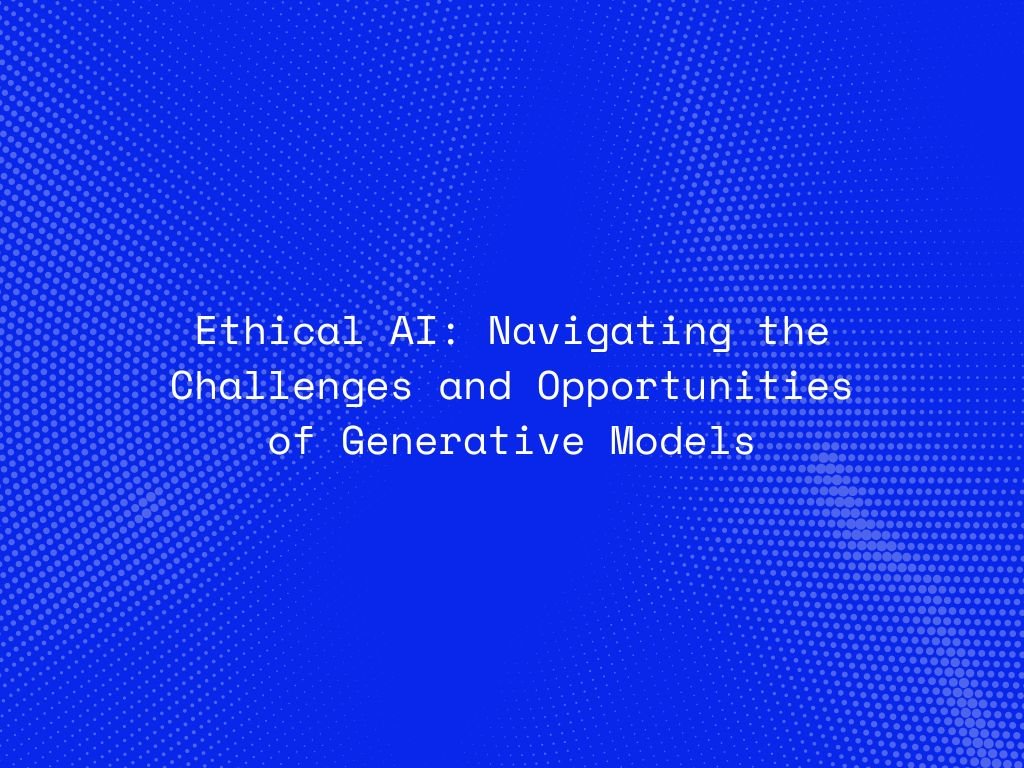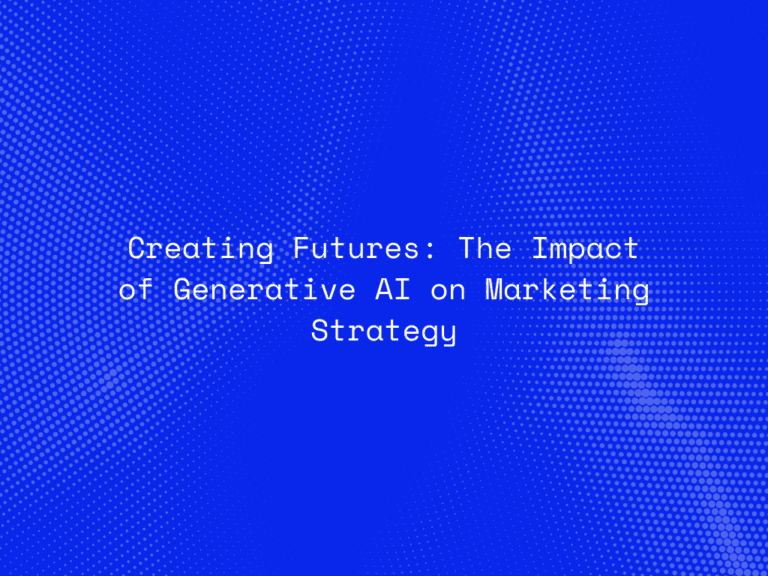Generative AI is revolutionizing industries by creating new content and solutions through advanced algorithms. However, with great power comes great responsibility. As generative AI becomes more integrated into our daily lives, ethical considerations become paramount. In this blog, we will explore the ethical challenges surrounding generative AI, discuss the importance of developing responsible AI practices, and examine regulatory responses to ensure fairness and transparency in AI development.
Understanding Generative AI
Generative AI refers to algorithms that can create new content—such as text, images, and music—by learning from existing data. This technology is widely used in various sectors, including healthcare, entertainment, and finance. For instance, AI-generated art and music are gaining popularity, while AI-driven medical diagnostics are improving healthcare outcomes. Despite its innovative applications, the ethical implications of generative AI cannot be overlooked.
Ethical Challenges of Generative AI
Bias in AI: Bias in AI occurs when the data used to train models reflects existing prejudices or inequalities. This can lead to unfair outcomes, such as discrimination in hiring or lending practices. Generative models can unintentionally perpetuate and amplify these biases, making it crucial to address this issue at the source.
Privacy Concerns: Generative AI often requires vast amounts of data, raising concerns about data privacy and user consent. Ensuring that data is collected, stored, and used ethically is essential to protect individuals’ privacy rights.
Accountability: Determining accountability for AI decisions and outputs is challenging. If a generative AI model produces harmful or biased results, it can be difficult to pinpoint who is responsible—the developers, the users, or the AI itself?
Transparency: The “black box” nature of many AI models makes it hard to understand how decisions are made. This lack of transparency can erode trust and make it difficult to identify and correct biases or errors in AI systems.
Opportunities for Ethical AI
Enhancing Fairness: By developing algorithms that promote equity, AI can help reduce biases and ensure fair treatment across different demographics. This requires a commitment to ethical data practices and inclusive model design.
Improving Transparency: Efforts to make AI processes understandable and accessible to non-experts can enhance transparency. Techniques such as explainable AI (XAI) can help demystify how AI models arrive at their decisions.
Building Trust: Establishing ethical standards and practices can build trust between AI developers, users, and the public. Transparent communication about how AI systems work and how they are used is key to fostering this trust.
Promoting Inclusivity: Ensuring that AI development involves diverse data and perspectives can help create more inclusive and fair AI systems. This includes involving ethicists, sociologists, and representatives from affected communities in the development process.
Connect With Us
Bias Mitigation Strategies
Data Diversity: Using diverse and representative datasets is crucial for minimizing bias in AI models. This involves collecting data from a wide range of sources and ensuring that all demographic groups are adequately represented.
Algorithmic Fairness: Techniques such as re-weighting training data, fairness constraints, and adversarial debiasing can help reduce bias in AI models. These methods aim to ensure that AI systems treat all individuals fairly, regardless of their background.
Continuous Monitoring: Regularly assessing and updating AI systems can help identify and correct biases as they arise. This requires ongoing vigilance and a commitment to ethical AI practices throughout the lifecycle of the AI system.
Collaboration: Working with ethicists, sociologists, and affected communities can provide valuable insights into potential biases and ethical concerns. Collaborative efforts can help create AI systems that are fairer and more equitable.
Regulatory Responses and Frameworks
Existing Regulations: Various regulations and guidelines address AI ethics. For example, the General Data Protection Regulation (GDPR) in the EU provides robust data protection and privacy guidelines, while the EU’s AI Ethics Guidelines outline principles for trustworthy AI.
Regulatory Frameworks: Governments and organizations play a critical role in shaping AI policies. Regulatory frameworks can provide guidelines for ethical AI development and deployment, ensuring that AI systems are used responsibly.
Future Directions: As AI continues to evolve, so will the regulatory landscape. Future regulations may focus on enhancing transparency, accountability, and fairness in AI systems. Continuous dialogue between policymakers, AI developers, and the public is essential to create effective and adaptable regulations.
Developing Responsible AI Practices
Best Practices: Implementing best practices for ethical AI development includes ensuring data diversity, promoting transparency, and involving diverse perspectives in the development process. Ethical AI development also involves continuous monitoring and regular updates to AI systems.
Case Studies: Several companies are leading the way in implementing ethical AI. For example, a tech company may use AI to enhance customer service while ensuring that its algorithms are fair and transparent. Another company might focus on using AI to improve healthcare outcomes while prioritizing patient privacy and data security.
Tools and Resources: Various tools and resources can help businesses promote AI ethics. These include fairness toolkits, bias detection algorithms, and frameworks for explainable AI. Leveraging these resources can help businesses develop and deploy ethical AI systems.
Corporate Responsibility: Ethical leadership is crucial for promoting AI ethics within organizations. Corporate responsibility involves setting ethical standards, providing training on AI ethics, and fostering a culture of transparency and accountability.
Conclusion
Ethical considerations are critical in the development and deployment of generative AI. By addressing challenges such as bias, privacy, accountability, and transparency, businesses can harness the full potential of AI while ensuring fairness and trust. Developing responsible AI practices and adhering to regulatory frameworks can create a future where AI benefits everyone equitably.
We invite you to share your thoughts and experiences with ethical AI in the comments below. Businesses interested in adopting ethical AI practices can reach out for more resources and support. Let’s continue the conversation and work together to create a future where AI is used responsibly and ethically.




